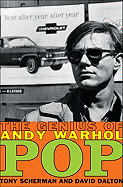"Why do they always name schools after politicians and movie stars? Why
don’t they name a school after a teacher?" the late Frank McCourt often
asked. Now his wish may come true. New York
magazine reported Mayor Michael Bloomberg "is expected to soon announce
the creation of the Frank McCourt High School of Writing, Journalism and
Literature, an application-only high school to open next fall on West
84th Street."
Shortly before his death, McCourt was told that
the school project might happen. According to Tom Allon, a former
student, now a teacher, "I said, 'It’s looking very good, Frank, and
there's a lot of good will about it.' He said, 'What an honor. What a
great thing that would be.'"
--
A bid for literary immortality. Entertainment Weekly
reported that two years ago Canadian journalist Rebecca Eckler paid
$7,000 "at a charity auction to have her name used as a character in
the next novel by her favorite author, fellow Canadian Margaret Atwood.
Now, that book is out: Atwood’s delightful and well-reviewed dystopian
novel The Year of the Flood."
"One of my character's
first quotes is, 'Praise the Lord and spit. I'm too black and ugly for
him . . . There you have it. Rebecca Eckler is no longer skinny,
neurotic and Jewish," wrote Eckler in Macleans magazine.
---
"Publishing
has changed a great deal since I 'retired' five years ago. But 'edit'
is still a verb. Editing is both an art and a skill, a craft," observed
Sam Hamill--poet, editor and translator and co-founder of Copper Canyon
Press--in an interview with the Kearney, Neb., Hub. "
---
Book Trailer of the Day: Crush by Alan Jacobson (Vanguard Press).
---
In their first blog entry on the Huffington Post's Book Channel, Christin Evans and Praveen Madan, owners of the Booksmith, San Francisco, Calif., recount how they quit "cushy corporate jobs" and wound up, to their great surprise, buying a bookstore.
And they did so in large part because they saw opportunities they believed others didn't see: "Why were [independent booksellers] not re-inventing their bookstores as innovative, thriving, value-adding, technology-embracing, community-building, trendsetting, financially successful enterprises? Why could they not compete successfully against the convenience of Amazon and the sales and distribution efficiencies of the large chains? Why did all independent bookstores have such terrible web sites? Why didn't they have great loyalty programs to reward their customers? What was the deal with the rude, arrogant, and I-couldn't-be-bothered bookstore clerks? And the final dilemma--while there seemed to be so much potential, why weren't the bookstore owners receptive to our help? There was no shortage of ideas!"






IPC.0204.S3.INDIEPRESSMONTHCONTEST.gif)






 During Tarcher's promotion last Wednesday for The Power of Kindness by Piero Ferrucci--during which 10 staffers handed out 200 $1 bills each at five New York City bookstores (
During Tarcher's promotion last Wednesday for The Power of Kindness by Piero Ferrucci--during which 10 staffers handed out 200 $1 bills each at five New York City bookstores ( Marcia Meredith Hensley, whose Staking Her Claim: Women Homesteading the West (High Plains Press) contains letters, memoir excerpts, oral histories and other accounts by single women homesteaders of the early 1900s about their lives, won the Mountains & Plains Independent Booksellers Association award for regional reference. High Plains's Nancy Curtis noted that "as a very small indie publisher headquartered on a ranch in Wyoming and an author who lives in Farson, Wyo., population under 100, we were blown away to win an award from the booksellers."
Marcia Meredith Hensley, whose Staking Her Claim: Women Homesteading the West (High Plains Press) contains letters, memoir excerpts, oral histories and other accounts by single women homesteaders of the early 1900s about their lives, won the Mountains & Plains Independent Booksellers Association award for regional reference. High Plains's Nancy Curtis noted that "as a very small indie publisher headquartered on a ranch in Wyoming and an author who lives in Farson, Wyo., population under 100, we were blown away to win an award from the booksellers."IPC.0211.T4.INDIEPRESSMONTH.gif)
 Soon after he arrived in New York City from Pittsburgh, Pa., in June 1949, Andy Warhol established himself as a highly successful commercial artist. His many prestigious magazine and advertising clients appreciated three qualities Warhold exhibited: his originality, his ability to tweak mundane design into something eye-catching and his incredible work ethic. In their survey of Warhol's career from 1960 to 1968 (aka, the Glory Years), Tony Scherman and David Dalton point out that his clients had no idea of another of Warhol's abilities: genius for manipulation. These four talents would equip Warhol for greatness.
Soon after he arrived in New York City from Pittsburgh, Pa., in June 1949, Andy Warhol established himself as a highly successful commercial artist. His many prestigious magazine and advertising clients appreciated three qualities Warhold exhibited: his originality, his ability to tweak mundane design into something eye-catching and his incredible work ethic. In their survey of Warhol's career from 1960 to 1968 (aka, the Glory Years), Tony Scherman and David Dalton point out that his clients had no idea of another of Warhol's abilities: genius for manipulation. These four talents would equip Warhol for greatness.